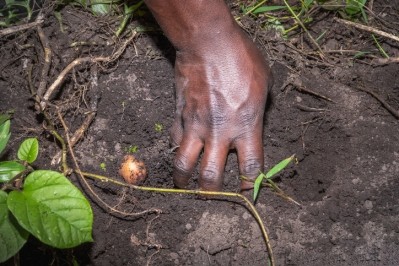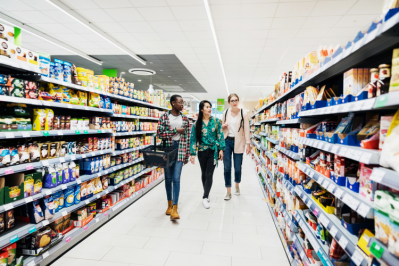Kerry discusses African expansion: ‘Sustainability is locally focused around food and nutrition security’

Kerry inaugurated its new R650m (€38m) South African production facility yesterday (9 May). Located in Hammarsdale, KwaZulu-Natal, the new 10,000 square metre site is one of the company’s most ‘environmentally efficient’ manufacturing locations. It will produce a ‘broad spectrum of flavour and nutrition technologies’ including dry blending, liquid blending, reaction flavours and spray drying, regional VP Paul Hewitt revealed.
“It increases Kerry SA's output capacity by 40%; the total capacity is 40 000 tons per annum with future expansion to 50 000 tons per annum,” he detailed.
The opening ceremony was attended by South African and Irish dignitaries including Nomalungelo Gina, South African Deputy Minister of Trade, Industry and Competition; Ravi Pillay, KwaZulu-Natal Economic Development, Tourism and Environmental Affairs MEC; and Ambassador of Ireland to the Republic of South Africa, Her Excellency Fionnuala Gilsenan.
Kerry’s investment is significant to the Kwa-Zulu Natal region and to South Africa’s food manufacturing industry more broadly, Deputy Trade Minister Gia noted. Speaking at the launch event, Gia said Kerry’s move ‘aligns very well with our re-imagined industrial strategy’.
“The project is recognised as a key strategic investment in the region of Kwa-Zulu Natal and within South Africa’s food manufacturing industry and has been included as part of the South African Presidential investment drive to stimulate sustainable, equitable and inclusive growth as the foundation for socio-economic transformation in the country,” she commented.
Meeting demand for sustainable nutrition in Africa
The investment is also significant for the role that Kerry hopes to play in the development of the food sector in the region, the company's efforts to provide 'sustainable nutrition' across the African continent and its ambition to grow alongside the expanding food markets across the continent.
“Africa is rapidly growing and we are ready to grow with it. Because South Africa is in a unique position to service East, Central and West Africa, and has the integrated production capacity, systems and technology to cater across the continent, opening Hammarsdale supports our focus on emerging markets and expansion into new markets by 2026,” Hewitt told FoodNavigator.
So what does sustainable nutrition look like in the African regional context? The new facility includes ‘numerous sustainability features’ such as low energy usage equipment, solar power generation, waste heat capture and efficient water capture, reuse and reduction. But sustainable nutrition in Africa also has to reflect other local concerns. “In Africa, sustainability is more locally focused around food and nutrition security,” Hewitt observed. “This creates an opportunity at the intersection of locally relevant tastes and affordable plant-based nutrition solutions; embedding Kerry in sustainable future-focused food systems.”
Kerry is achieving this through a combination of innovation and efficiency, the ingredient executive continued. “We are doing this by innovating together to improve inefficiencies in production, reduce waste and emissions, raw material and finished product transport costs, as well as localise the manufacturing footprint to improve sustainability.
“This involves co-creating with producers, manufacturers and processors to help produce tastier, healthier, more nutritious and sustainable products that meet shifting consumer demands while simultaneously feeding the African continent’s growing population.”
Understanding the tastes and preferences of local consumers has formed the bedrock of Kerry’s business in South Africa, where it has been present since 2011. “Our success has been based on our ability to deliver truly authentic African taste by identifying traditional food and flavours and reimagining it into today’s modern context. More than understanding consumer taste, we are committed to predicting global and regional trends and innovating with our customers to lead the industry towards the next generation of sustainable African food and nutrition,” Hewitt concluded.
“Kerry ultimately aims to decrease the environmental and social impacts of the food industry value chain so that consumers everywhere can make better, healthier choices and leave a better world for future generations.”


























